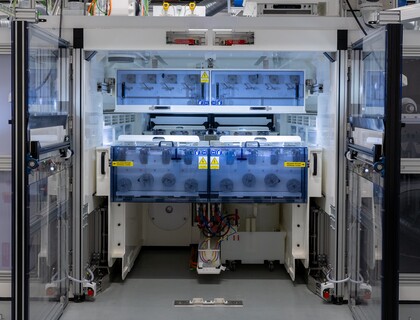
Prof. Rajan Jose
Professor Rajan Jose is a Chair Professor of Energy and Battery Technology at the Battery Research Center of Green Energy, Ming Chi University of Technology, Taiwan. He is Associate Editor-in-Chief of the Springer Nature journal Materials Circular Economy. He has served as the Dean of Research (Technology) of UMP during Feb 2016 – Aug 2019 besides serving as the Member of Senate and Graduate Council of UMP.
He has investigated nanostructured perovskite ceramics for microwave and superconducting electronics during doctoral research at the Council of Scientific and Industrial Research (CSIR), Trivandrum, India and has received PhD degree in the year 2002. He has contributed to the science and engineering of diverse range of materials including inorganic and organic semiconductors, polymers, metals and alloys, materials for molecular electronics, biomaterials, glasses, and glass ceramics. He was employed as a scientist at the Indira Gandhi Centre for Atomic Research (India), AIST (Japan), Toyota Technological Institute (Japan), and the National University of Singapore (Singapore) before joining UMP. He has published over 365 papers in the Web of Science (Thomson Reuters/Clarivate Analytics) indexed journals which are cited over 20500 times with an h-index of 72 according to Google Scholar database. He holds 30 patents. He has supervised 6 Postdoctoral, 30 Doctoral, and 11 Master’s researchers. Stanford University places him as a top 2% Materials Scientists in the world ever since 2020. His current research interests include renewable energy devices, sustainable materials, circular economy, data science, and artificial intelligence.
Chair Professor of Energy and Battery Technology, Ming Chi University of Technology, Taiwan


-
Sustainability of Electrospinning via Artificial Intelligence: Hands-On Machine Learning Workshop
This workshop offers a comprehensive introduction to electrospinning technology and its sustainability aspects, especially lowering of solvent concentrations, sacrificial polymers in the case of inorganic fibers, increasing energy efficiency, alongside an exploration of materials informatics and machine learning.
The first part of the workshop focuses on the fundamentals of electrospinning for real world applications. In the second part, the workshop explores materials informatics, explaining how data-driven approaches are transforming materials science. The use of machine learning (ML) in optimizing electrospinning parameters will be introduced, offering students a hands-on opportunity to apply ML techniques to predict fiber characteristics.
The session will provide an overview of accessible machine learning tools sch as Jupyter Notebooks (coding-based) and the Orange software (no code). Participants will see how these tools can be used to analyze electrospinning data and build models to predict outcomes based on experimental parameters.
In the last hands-on session, participants will explore how to implement machine learning models using both Jupyter and Orange, depending on their comfort with coding. With a provided dataset of electrospinning parameters and fibre properties, students will learn how to build simple models to predict fibre diameters and make data-driven adjustments to the electrospinning process.
This workshop will give participants a unique opportunity to explore the intersection of electrospinning and machine learning, preparing them for future application in materials informatics.
Prof. Rajan Jose
Chair Professor of Energy and Battery Technology, Ming Chi University of Technology, Taiwan

Professor Rajan Jose is a Chair Professor of Energy and Battery Technology at the Battery Research Center of Green Energy, Ming Chi University of Technology, Taiwan. He is Associate Editor-in-Chief of the Springer Nature journal Materials Circular Economy. He has served as the Dean of Research (Technology) of UMP durin…

